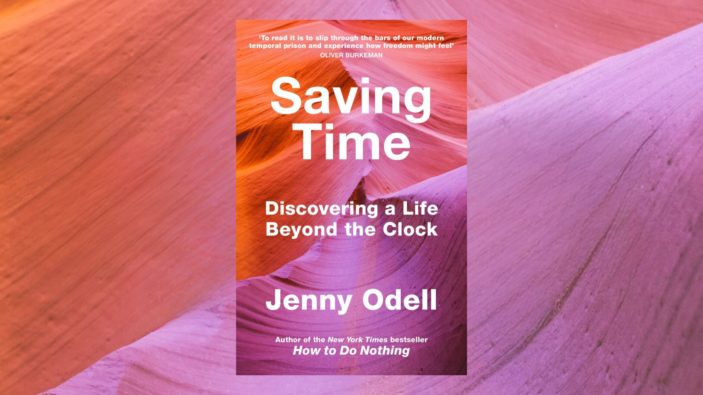
Saving Time: Discovering a Life Beyond the Clock by Jenny Odell is a deeply thought-provoking book that challenges the way we perceive time and its relationship to our lives, work, and the environment. The author explores vital topics like climate change, equality, death, and culture in an intense, but engaging manner that will make readers re-conceptualise their relationship with time both personally and in the larger context of living in the world.
Odell’s extensive research and illustrative use of historical contexts make this book feel vast; and her ability to deconstruct the idea that ‘time is money’ is both enlightening and stirring. Her focus on the extraction of time and resources that come with labour highlights the fact that not having ‘enough time’ does not mean the same thing for everyone.
She breaks down into very fine, demonstrative details the structural inequalities that render some people’s time worth more than others, and how our conception of a person’s time as a unit of capital and labour will always bear inequality when set against the reality of the world that we live in and the bodies within which we move through it.
Of particular note, Odell discusses the difficulty in translating – both linguistically and conceptually – how time is understood and lived in different indigenous cultures around the world. She includes a brilliant quote from Tyson Yunkaporta’s Sand Talk: How Indigenous Thinking Can Save the World, which says that the act of translating such concepts into English immediately changes their meaning and thus how they are understood outside of their cultural and linguistic context. She summarises the result of this conundrum so:
The challenge of trying to overcome this barrier and conceive of time differently – not as some kind of exotic alternative or idle speculation, but in a fundamentally felt way – is difficult and fascinating. It is also urgent, a matter of political and ecological import. Conceptions of time are deeply related to how and where we see agency, including within ourselves. They matter especially now, when the world calls out not just for action, but also a less human-centric model and who and what is owed respect and justice.
p. 124
This then leads to discussions about the urgency of the climate crisis and the absurdity of having to go to work when the world is literally burning around us. Her use of nature to explore time and different avenues to alter our perspective is particularly fascinating and challenging.
These re-conceptions are backed up by a huge variety of different sources; the massive bibliography and plethora of sourced information offer an invitation to engage with a huge variety of thinkers, writers, and activists whose works converge on these issues.
Overall, Saving Time is a timely discussion of where we seem to be as humanity, and reading it is like dipping your toes in hundreds of other books written over hundreds of years. It is a dense, rich text, full of concepts that can take a few beats to sink in, but it is absolutely worth the effort.
This book has the potential to be a lifeline for those of us threatened the most by despair, and every time you sit down to read it, you leave feeling more human and more aware of your experience of being alive.
FOUR STARS (OUT OF FIVE)
Jenny Odell’s Saving Time: Discovering a Life Beyond the Clock is available now from Penguin Australia/Bodley Head. Grab yourself a copy from Booktopia HERE.
